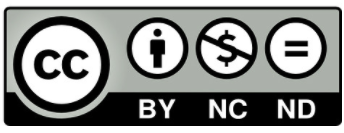El genio en Descartes: ¿Es más poderoso y virtuoso que Dios?
Citas
Broughton, J. (2003). Descartes’s Method of Doubt. Princeton University
Press.
Descartes, R. (2006). Meditations, Objections, and Replies, Hackett.
Doney, W. (1968). Descartes: A Collection of Critical Essays. University of
Notre Dame Press.
Engel, M. (2005) The Equivocal or Question-Begging Nature of Evil Demon Arguments for External World Skepticism, Southwest Philosophy Review: The Journal of the Southwestern Philosophical Society, 21, 163-178.
Etieyibo, E. (2010). Cartesian Hyperbolic Doubts and the ‘Painting Analogy’ in the ‘First Meditation’, Diametros: An Online Journal of Philosophy 24, 45-57.
Frankfurt, H. (2007). Demons, Dreamers, and Madmen: The Defense of Reason in
Descartes's Meditations. Princeton University Press.
Goldberg, S. (2012). A Novel (and Surprising) Argument against Justification Internalism, Analysis, (2012), 72, 239-243.
Lyons, J. (2013). Should Reliabilists Be Worried about Demon Worlds? Philosophy and Phenomenological Research 86, 1-40.
Williams, B. (2005). Descartes: The Project of Pure Enquiry. Routledge.
Descargas
Descargas
Publicado
Cómo citar
Número
Sección
Licencia
Derechos de autor 2024 Leandro Abel Cuellar; Dr. Joshua Hall

Esta obra está bajo una licencia internacional Creative Commons Atribución-NoComercial-SinDerivadas 4.0.




